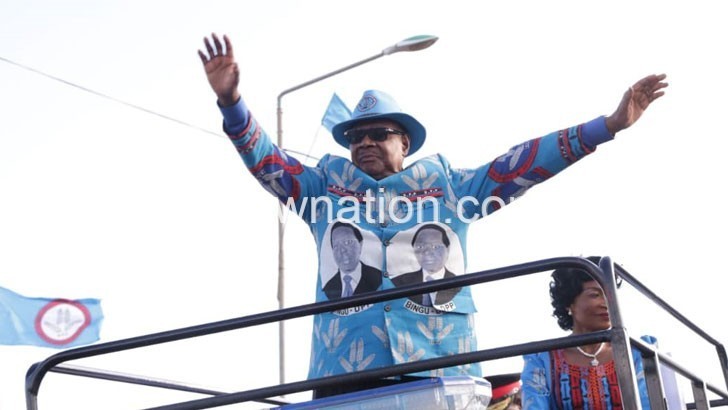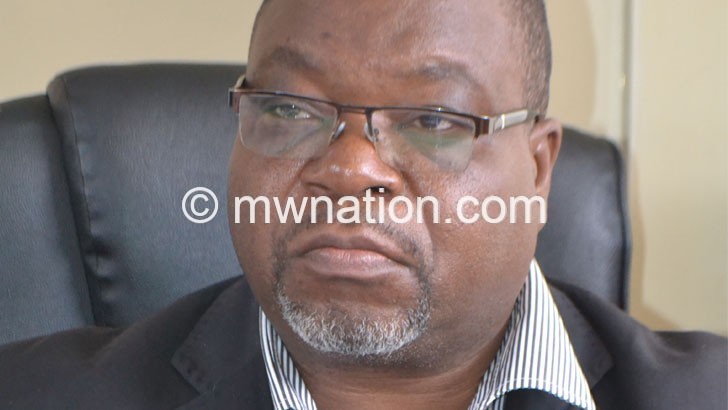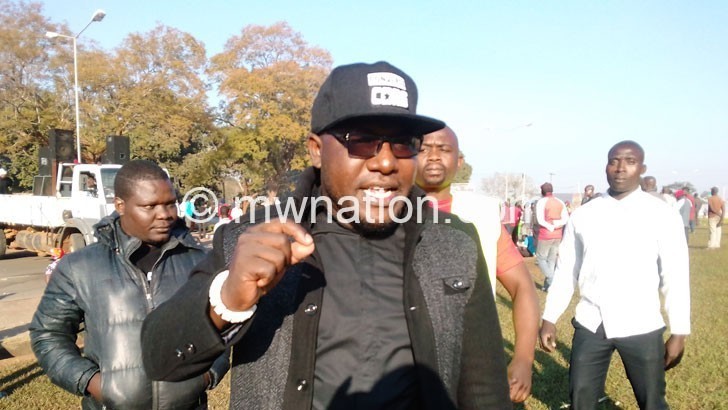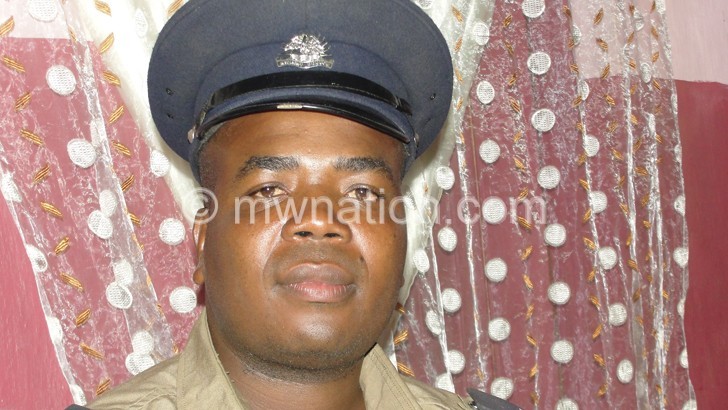Whither civility?
- Podium insults frustrate policy discourse
- Rebuke politicians, reject their ways—PAC
A sitting male Head of State—Peter Mutharika—on Monday, in the comfort of his home village of Goliati in Thyolo, insulted the chastity of his predecessor, who happens to be a woman, Joyce Banda.

Days earlier, Banda had called her successor a drunkard who was too senile to run the affairs of State and throwing at her a sexually disparaging label was the President’s idea of payback.
The governing Democratic Progressive Party (DPP) has a history of hitting back at Banda from Goliati. Remember the Sesa Joyce Sesa (Sweep out Joyce, sweep her out) mantra featuring one time DPP stalwart George Saonda in October 2013 ahead of the May 2014 Tripartite Elections?
President Banda had held a rally at Goliati where then Minister of Health, Catherine Gotani Hara—now Speaker of Parliament—said being former president the late Bingu wa Mutharika’s young brother did not qualify Peter to be Head of State.

The DPP took those remarks as a personal insult, especially because they were uttered right in Mutharika’s constituency, which led to DPP-(People’s Party) fracas that claimed a police officer’s life.
A slighted Peter Mutharika later went to the very spot Banda had held the rally—Goliati—and unleashed Saonda to denigrate the sitting president then.
Today, in between the tit-for-tat presidential insults within the outlier court-created election season, the two most prominent presidential running mates in the forthcoming fresh election—Saulos Chilima of the Tonse Alliance and Atupele Muluzi of the DPP-United Democratic Front (UDF) partnership—had to drive fast and furious for their dear lives as mobs staged acts of violence on their convoys that threatened their personal safety and that of their respective campaign teams.
Banda’s PP is one of the nine political groupings supporting the candidacy of Tonse Alliance torch- bearer Lazarus Chakwera, who is also president of Malawi Congress Party (MCP).
Mutharika, on the other hand, is at the top of the DPP-UDF ticket in a fresh presidential poll that must be held by July 2 2020.
Other rhetorical obscenities both on and off political podiums plus violent clashes and heckling, including of President Mutharika himself on May 7 this year, are slowly plunging Malawi into lawlessness with few political leaders to look up to for moral campus.
What is going on?
Is the negative portrayal of others’ personalities being taken as ideological expressions because candidates have failed to define to their supporters and electorate at large what they stand for?
How can this lack of civility in political discourse be dealt with?
The solution, says the Public Affairs Committee (PAC), is for Malawians—regardless of political affiliation—to roundly rebuke the offending politicians and reject their ways.
In a telephone interview yesterday, PAC spokesperson Bishop Gilford Matonga said Malawians must hold profane and violence-cuddling leaders accountable and demand issue-based campaigns.
He said: “Malawians must speak to their candidates that they don’t want campaign full of castigation. But instead, we get excited and it is like condoning such behaviour.
“These politicians will never change if we let them be and that is why Malawians are getting a raw deal at the end of the day.”
In a separate written response, Ernest Thindwa, a political science lecturer at Chancellor College—a constituent college of the University of Malawi—said the primary challenge is quality within the political class that is struggling to divorce itself from archaic politics and migrate to issue-based campaign.
“It will take a visionary change agent who, when she or he assumes the leadership role, will be keen to reconstruct our political culture in a fashion that rewards progressive political discourse while harshly condemning and punishing retrogressive politicking,” he said.
Candidates continue castigating each other despite the Malawi Electoral Commission (MEC) code of conduct for political parties and candidates being clear about how they must conduct themselves and towards others during campaigns.
For instance, the MEC code of conduct for political parties and candidates (prescribed under Section 61 [2] of the Parliamentary and Presidential Elections Act) prohibits use of language or act or behave in any way that may provoke or promote violence or intimidate candidates, representatives of candidates or supporters.
The code further prohibits use of language, actions or behaviours that disparage or is designed to intimidate candidates on the basis of their gender, disability or minorities.
When asked what MEC is doing to enforce the code, the commission’s spokesperson Sangwani Mwafulirwa could not respond to our questionnaire by press time.
However, in separate interviews, UTM Party and MCP which, together with seven other parties have formed the Tonse Alliance claimed it is mainly parties in power that engage in such behaviours as they strive to cling to power.
In a written response, MCP spokesperson the Reverend Maurice Munthali, said: “The rules of political campaigns are clear. As Tonse Alliance, we endeavour to confine ourselves to issue-based messages.”
But Patricia Kaliati—the UTM Party secretary general (SG) who is a prominent member of the Tonse Alliance—recently dragged Atupele Muluzi’s wife and their marriage into campaign discourse at a political rally.
On his part, UTM Party spokesperson Joseph Chidanti Malunga claimed there is desperation by those clinging to power and who use personal attacks to retain it.
Efforts to speak to governing DPP spokesperson Nicholas Dausi proved futile as his known mobile number could not be reached.
The party’s SG Grezelder Jeffrey did also not pick our calls on numerous attempts.





